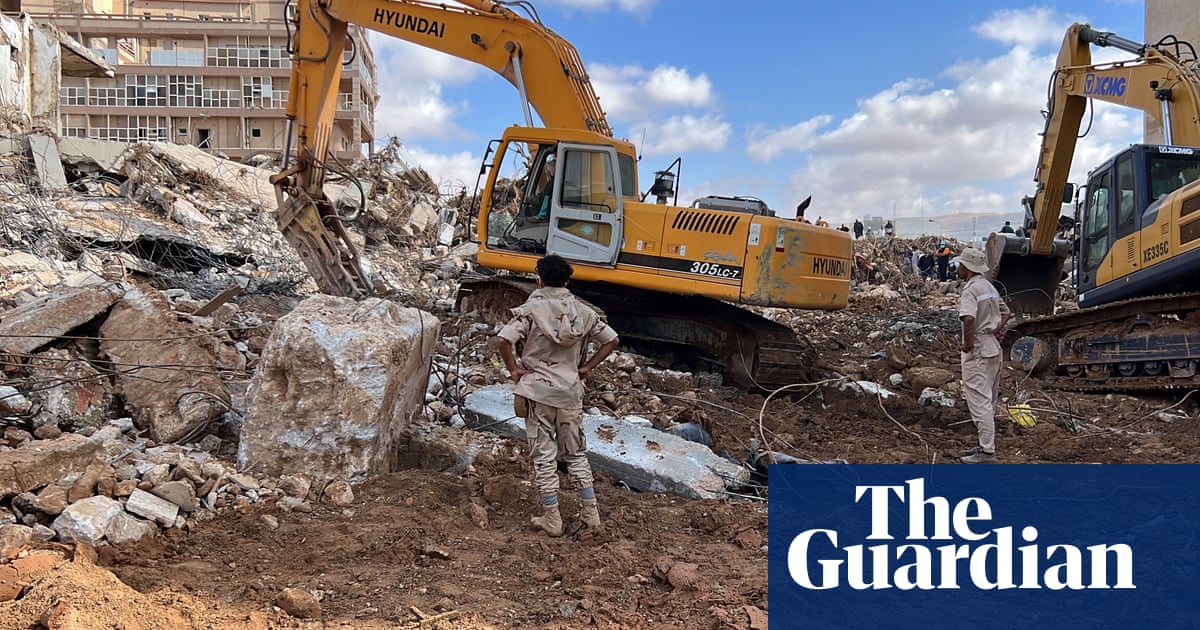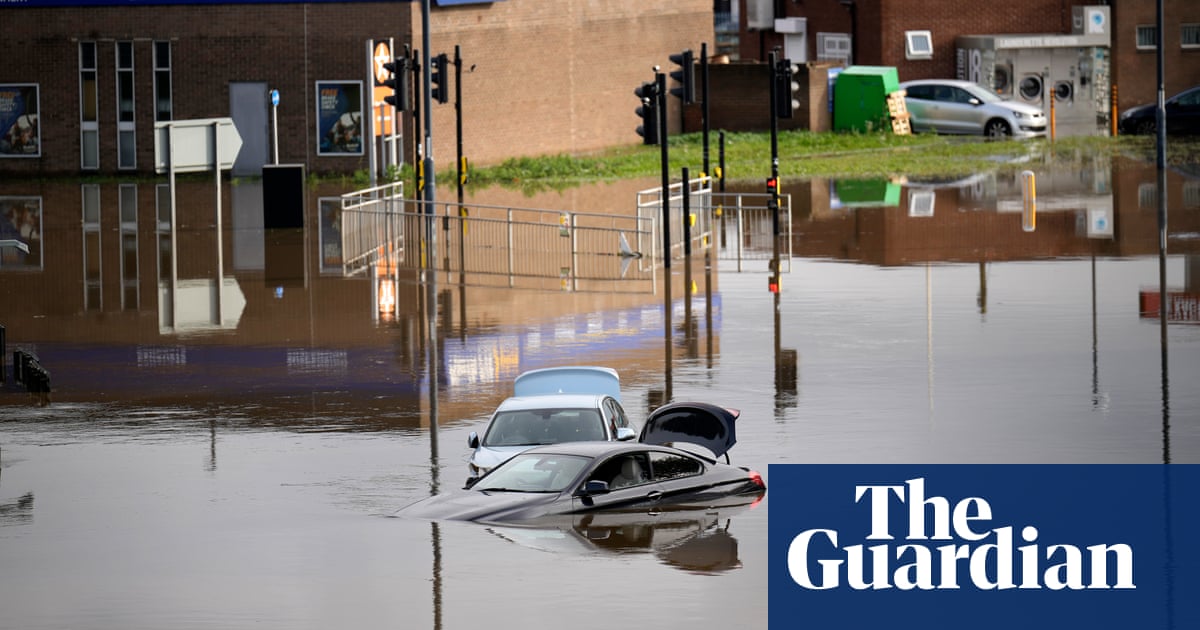
The site of the mass graves where thousands of people have been buried since devastating floods wiped out much of the eastern Libyan port city of Derna on 11 September is on top of a hill. Countless bodies have been taken here, washed and then wrapped in sheets, covered by red soil and quicklime to counter the stomach-turning stench of decay. There is a constant sound of excavators digging new graves.
A few survivors come here too, searching for the missing – though they are likely to have been buried. One man living in Britain, who did not want to share his name, had come from Newcastle to search for his loved ones.
His family had been visiting relatives in Derna while he stayed behind due to work commitments. They all perished. “I just arrived from the UK myself to find them,” the distraught man says, standing between several freshly dug graves.
“My wife and children were supposed to be taking a nice holiday. Now they are dead.”
Hanan Ali’s husband might also be one of the bodies laid here, but the 46-year-old does not know for sure.
“I know he was buried on Tuesday,” Ali says. “That day the streets were still covered in dead bodies; there was water and mud everywhere.
“They took my husband to a burial site, but I didn’t even ask where it is; I wasn’t there to bury him.”
An estimated 11,000 people were killed and thousands more remain missing since Storm Daniel made landfall on 11 September, with torrential rain filling up two poorly maintained dams that burst and wiped out part of Derna.
The World Health Organization said on Saturday that nearly 4,000 people who had been killed in the floods had so far been identified.
While rescue teams are trying to document victims, identifying bodies and issuing death certificates has not been possible for all: many continue to be put in mass graves, their names unknown to those burying them in locations unknown to their grieving families.
Ali had proof, at least, that her husband had been killed – he was taken to a hospital morgue, where their daughter identified him and received a death certificate. Ali herself did not have the heart to go.
“He was such a kind man,” she says, a smile on her face, before tears started streaming down her cheeks. “We were told to evacuate our apartment last Saturday, a day before the floods hit.
“We left, taking only our documents, but my husband refused to leave. He had recently suffered a stroke and wasn’t strong enough to make the journey, he wanted to stay at home.”
A week on, dozens of bodies are still being recovered each day as the stench of death intensifies in the city, which is squeezed between the Mediterranean and a steep mountain slope.
People cover their faces as they walk down the muddy roads, but death’s scent is ever present. Outbreaks of disease are feared.
Mohammed el-Gharguti, 34, a businessman and former soldier, came to Derna to help with the relief work and now works at a body-collection point, set up in a wide open space that was once part of the city’s beautiful Mediterranean corniche.
His team operates with pickup trucks to transport the dead, as well as with others who washing and preparing the bodies for burial. Identifying bodies is sometimes possible, sometimes not, Gharguti explained, especially as many surviving relatives had to leave.
With much of Derna completely wiped out, many people have moved away to find temporary accommodation. Some have gone as far as Benghazi, the nearest metropolis to Derna, which was previously isolated because it fell under the control of jihadists, including al-Qaida, and later Islamic State.
Others have temporarily found shelter in those of the city’s schools that have not been affected by the floods.
Abdul Jawad is one of them. He lost his eldest son, 13-year-old Raceb, in the floods. He had received a phone call informing him that a body that might be his son’s had been found and was in a hospital morgue waiting to be identified.
“My wife collapsed when she heard,” he says. Jawad has not yet gone to identify the body.
“I don’t have the courage to check, or even to bury him,” he says, in tears as he recalls last week’s events. “My son was ripped away in front of me. We lived on the second floor of a building, and when the water came, I tried to get my family to the roof.
“I saved my four daughters and my youngest son, but not Raceb. The waters carried him away in front of my eyes. He is gone.”












